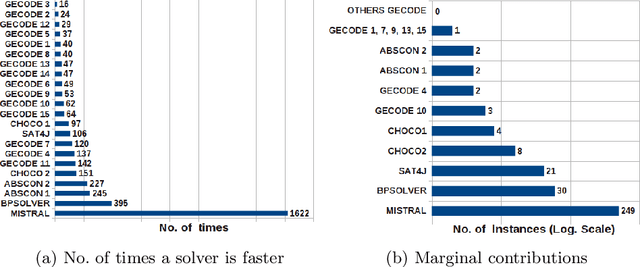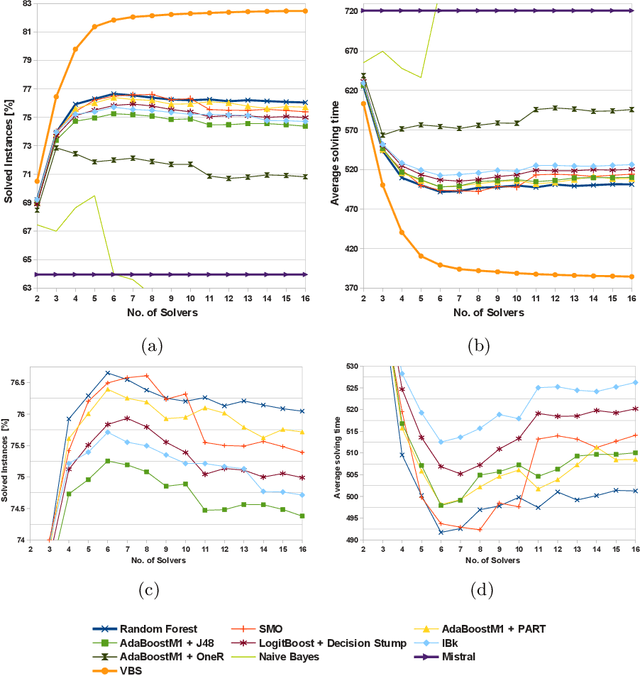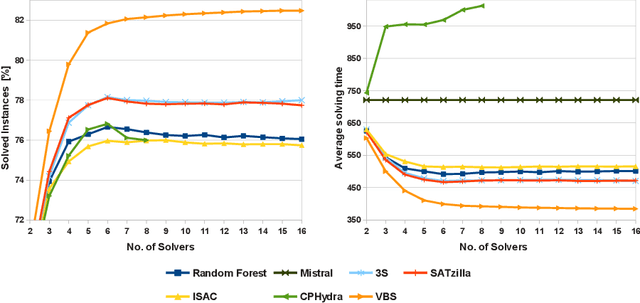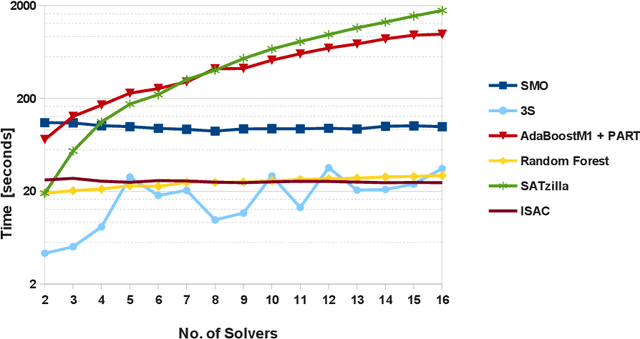An Empirical Evaluation of Portfolios Approaches for solving CSPs
Paper and Code
Jan 05, 2014



Recent research in areas such as SAT solving and Integer Linear Programming has shown that the performances of a single arbitrarily efficient solver can be significantly outperformed by a portfolio of possibly slower on-average solvers. We report an empirical evaluation and comparison of portfolio approaches applied to Constraint Satisfaction Problems (CSPs). We compared models developed on top of off-the-shelf machine learning algorithms with respect to approaches used in the SAT field and adapted for CSPs, considering different portfolio sizes and using as evaluation metrics the number of solved problems and the time taken to solve them. Results indicate that the best SAT approaches have top performances also in the CSP field and are slightly more competitive than simple models built on top of classification algorithms.
 Add to Chrome
Add to Chrome Add to Firefox
Add to Firefox Add to Edge
Add to Edge